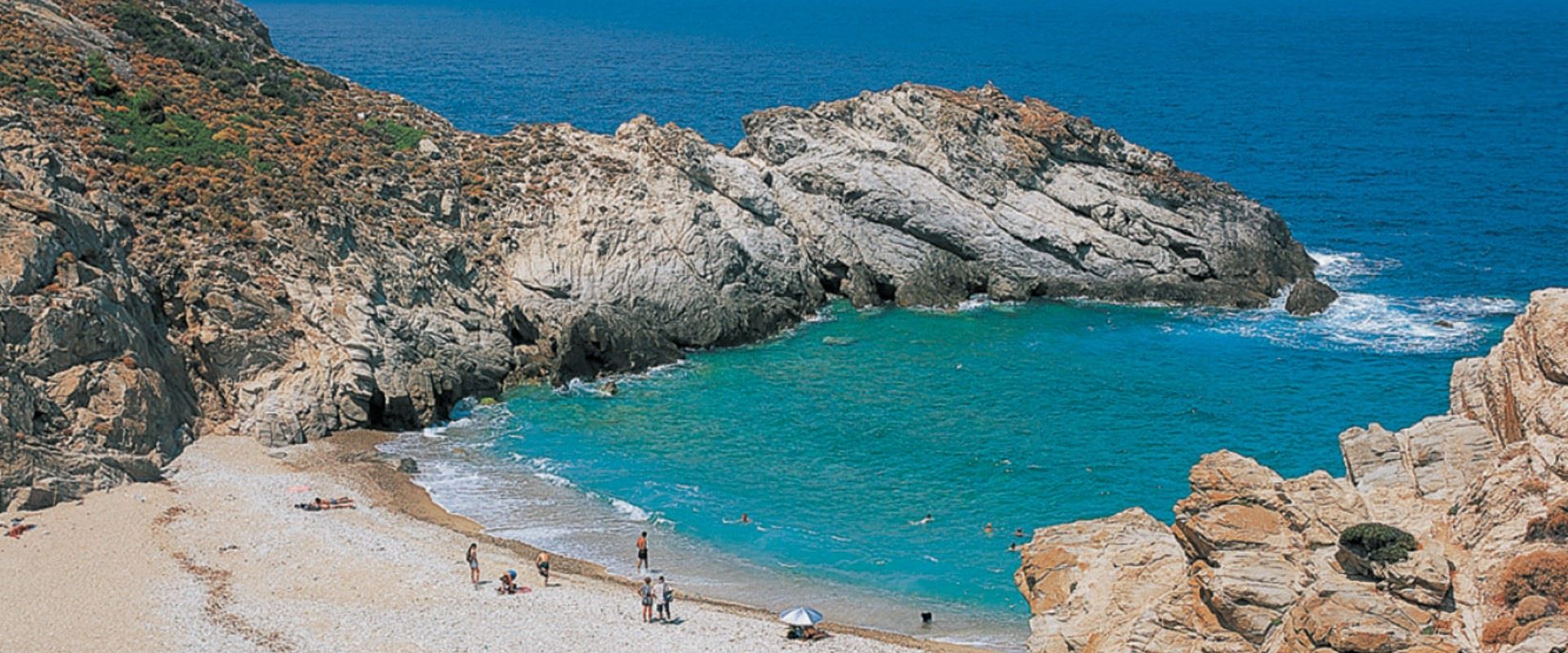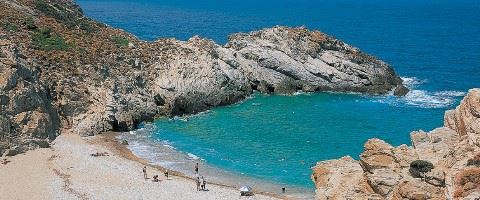The island is also one of only five identified 'blue zones' on the planet - a place where people live remarkably longer lives. All the more wonder then that Ikaria is so little known.
This is largely because it is remote, and historically an island of exile until relatively recently. Neglected by Athens for many years, and ill-served by ferries to this day, Ikaria was left to go its own way. Still difficult to get to, those who make the effort are richly rewarded. Named after Ikarus, who flew too close to the sun and plunged into the sea here, Ikaria is 40 kms long but never greater than 8 kms wide. With Atheras soaring to over 1000 metres, this means some tortuous roads and dizzy drops, especially when crossing the island from the main port, Ayios Kirikos, in the south.
Our accommodation is close to the fishing village of Armenistis on the north coast, 57 kms from Ayios. With long white sand beaches to the east and lush mountain behind, it is the prettiest seaside spot on the island, and the centre of what limited tourism there is.
The village has just the right number of tavernas, cafés and small shops to give enough variety. five more (very good) restaurants can be found above the beautiful sandy cove at Nas 3 kms to the west, which has the remnants of a temple of Artemis behind. Armenistis has a small beach of its own but, apart from when the meltemi blows, most people head for long Livadi or Messakti beaches just outside the village. Please be aware that Ikaria has some strong off-shore currents and it is not always safe to swim (main beaches have warning flags).
The forest on the mountainside directly inland from Armenistis is a natural paradise, full of the sounds of birdsong, rushing water and rustling pines. It hides lakes, monasteries and traditional villages, four of which (collectively known as rahes) have produced a 25 km walking rail, split into sections, which starts just behind Livadi beach – but try not to reach Christos before the evening when it comes to life (the locals sleep for much of the day!).
There is limited public transport on Ikaria and taxis can be hard to find, so car hire is highly recommended (4wd if going much into the mountains) – there is a lot to explore. Adventurers with a 4wd can brave the drive up and over the top to Manganitis village (28 kms, 1 hour), your reward being access on foot to 'Seychelles' beach, often named as 'one of the world's most magical hidden beaches'.
Excursions do run, subject to numbers; some by jeep or 4wd minibus. One interesting trip last year included a visit to a winery followed by a traditional Ikarian dinner then an evening visit to the 'asterix' village of Christos rahes (see above).
Ikaria is famous amongst Greeks for its panayiri’s (saint’s Day festivals), natural beauty, local wine, fresh fish and sunsets. It is not famous at all elsewhere, which is why we would urge a visit to this magical, wild and quite unique island.









